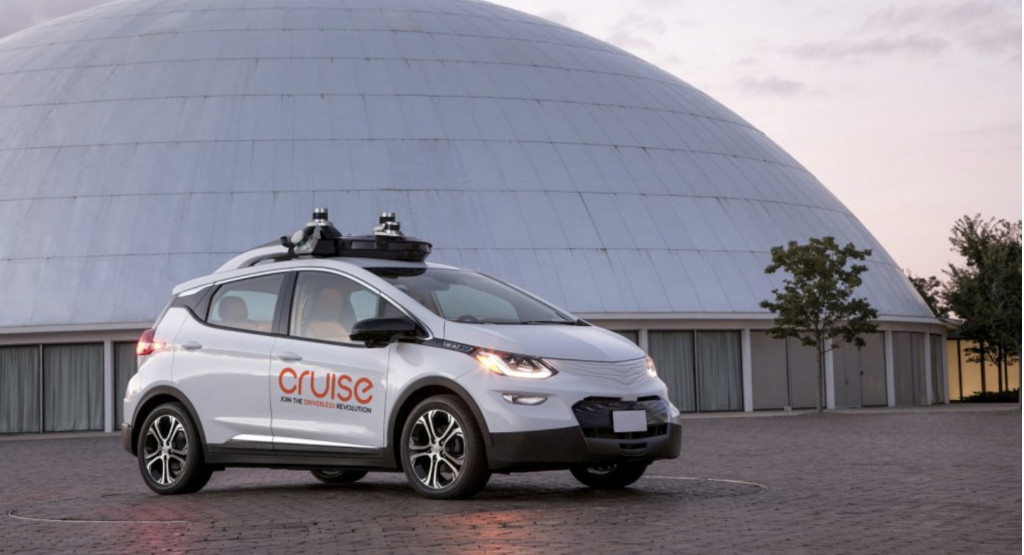Here in the U.S., automakers are making huge investments in research and development for advanced vehicle features and autonomous technology, while several automakers—Toyota, for instance, and recently Honda—are being cautious about investing in an electric-car future.
The 2020 Global Automotive Consumer Study, from the consulting firm Deloitte, might suggest that for some carmakers the priorities are a little out of alignment. The massive consumer study that included more than 35,000 responses from 20 global markets, with an online panel supplementing results for the six focus markets, notes that while lots of questions remain about autonomous tech, according to Deloitte, interest in EVs among consumers is growing.
On the autonomous front, one trend that automakers might find alarming in the U.S. is that there’s declining faith in them on the autonomous front—meaning that engaging third-party mobility-tech companies like Waymo or Cruise may be essential.

GM Cruise AV self-driving car
Deloitte’s data shows the percentage of consumers who would most trust traditional automakers to bring autonomous tech to market falling from 47% in 2018, to 39% in 2019 and just 31% in 2020. And it would likely be safe to assume that most consumers don’t consider Tesla a traditional automaker quite yet.
Electrified vehicles emerging quickly from the sidelines
In what might serve as a reality check for Green Car Reports readers, 59% said that they’d prefer a non-hybrid gas or diesel model as their next vehicle. But it’s changing quickly, with 41% hand-raising for alternative powertrains today versus 29 percent in 2019.
In the U.S., 27% said that they preferred a hybrid system in their next vehicle, while 8% preferred a fully electric vehicle.

2020 Hyundai Ioniq Electric
54% of Americans were unwilling to pay more than a $500 premium for EV tech, which it frames as “alternative engine solutions,” while a higher percentage, 58%, are unwilling to pay more than $500 extra for autonomy. But Deloitte sums that the portion of consumers willing to pay any more for such technologies has increased since 2017, when it collected a similar data set.
China and India stand out in stark contrast, with just 7 percent of consumers saying that they are unwilling to pay more for electric or electrified vehicles.
Gas prices still a motivator for going EV, no matter where in the world
Across each of the markets studied, higher gas prices would be cause for much higher levels of EV interest. In the U.S., bringing the per-gallon price from $3.81 up to $5.33 would raise the percentage who are “much more likely” to consider EVs from 20% to 58%.

Gas prices and EV consideration by country - Deloitte 2020 Global Automotive Consumer Study
The study found that to be the case even in the U.S. where, as it summed, “significant barriers to EV adoption remain.”
Range and charging demands
In Germany, which has become the biggest electric vehicle market in Europe, respondents were actually more demanding than Americans about the minimum driving range they’re expecting from an EV. More than two-thirds of Germans expected EVs to offer a range of more than 300 miles (34% for 300 miles and 34% for 400 miles).

Minimum EV range for consideration, by country - Deloitte 2020 Global Automotive Consumer Study
Automakers might be spending too much on enabling super-fast charging at this point, even if it does allow charging times approaching the length of a gas-station stop. The study found that across all markets “a large proportion of consumers are willing to wait at least 30 minutes to fully charge a BEV”
Deloitte also asked respondents in the six markets who they think is responsible for building publicly accessible charging stations and infrastructure. In Japan, the U.S., India, and China, the top response was vehicle manufacturers, while in Korea and Germany respondents pointed to government.
